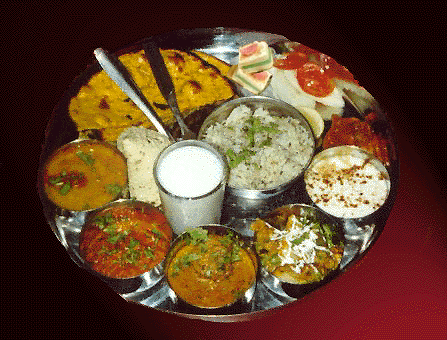Q. I was wondering if you could help me understand something. Could you please explain the exchange of karma/bhakti involved when you take someone’s remnants? Could you explain the following scenarios if there is a difference…
1) Taking the remnants of a pure devotee – do you get the bhakti of the pure devotee and does the pure devotee get some of your karma?
2) Taking the remnants of a mixed devotee – is it a mutual exchange of karma and bhakti or does the person who takes the remnants get the bhakti and the devotee who it was taken from get the karma?
3) Taking the remnants of a non devotee.
Answer by Romapada Swami: Srila Prabhupada explains in BG 17.10, “Remnants of food may be eaten only when they are part of a meal that was first offered to the Supreme Lord or first eaten by saintly persons, especially the spiritual master. Otherwise the remnants of food are considered to be in the mode of darkness, and they increase infection or disease.”
Thus, exchanging remnants of ordinary food, particularly in the case of non-devotees (part 3 of your question) is definitely not recommended. It increases the mode of ignorance; even from the external point of view, it is not hygienic, and furthermore as indicated in your question, one also becomes infected on a subtle level by the qualities and karma of the person.
On the other hand, the remnants of saintly persons as well as the dust of their lotus feet and the water used to wash their feet, are all highly potent to re-awaken our bhakti. Srila Prabhupada explains, “Pure devotion is as much infectious, in a good sense, as infectious diseases. A pure devotee is cleared from all kinds of sins… The bhakti-vedantas as above mentioned were pure devotees, and the boy [Narada, in his previous life as the son of a maidservant] became infected with their qualities of purity by their association and by eating once the remnants of the foodstuff taken by them.
“Such remnants may be taken even without permission of the pure devotees. There are sometimes pseudo-devotees, and one should be very much cautious about them.” (SB 1.5.25)
In answer to part 1 of your question, the pure devotees are not only free from all sins or karma, but they are also prophylactic – just as the sun can purify any contaminated place but itself remains uncontaminated, similarly great saintly persons can purify even holy places of pilgrimage, because they always carry the Supreme Lord within their hearts. “It is said that sinful persons go to the holy places and leave their sins there to accumulate. But the presence of the great saints disinfects the accumulated sins, and thus the holy places continue to remain sanctified by the grace of the devotees and saints present there.” By their own intensity of absorption in devotional service, all such accumulated sins are burned up and thus the saintly persons remain unaffected.
However, Srila Prabhupada did indicate that when one allows materialistic people to touch his feet or offer obeisances, he would have to take their sinful reactions, which may sometimes have adverse consequences such as bringing ill-health etc to the devotee.
A devotee is naturally humble and reluctant to allow others to touch their feet or take their remnants, and furthermore so, knowing the risks involved. Nevertheless they do permit it on certain occasions, knowingly and voluntarily taking the risk just to benefit the conditioned souls. This is due to their immense compassion, as well as to establish this scriptural principle and spiritual culture of the importance and potency of honoring saintly persons. Thus they offer their remnants, particularly to disciples/followers who are looking up to them as the representative of the Supreme Lord and are sincere to cultivate bhakti.
On the part of those receiving such remnants, they should not take this as simply an opportunity to get rid of their sinful reactions so that they can continue on with their materialistic life, taking advantage of a pure devotee. But if they take this as a great opportunity for spiritual advancement, then they would be highly benefited.
Thus the element of faith has a great bearing on the efficacy of this principle. Honoring the remnants of vaishnavas is very powerful but in proportion to the faith and respect with which one honors such remnants.
In a simple and genuinely humble state of consciousness, one may take the remnants of any sincere vaishnava without considering whether they are high or low. This is illustrated in the famous narration of Kali dasa, who had taken the prasadam remnants left by ALL the vaishnavas in Bengal, be they neophyte or advanced devotees. Because of his simplicity and *great faith* in honoring the maha-prasadam of vaishnavas, he won the very special favor of Lord Caitanya. Although Lord Caitanya strictly forbade anyone from taking the water that washes his feet, he made an exception and allowed Kalidasa three times to drink his caranamrita, as well as gave His own food remnants to Kalidasa. Thus Kalidasa achieved supreme mercy. (cf. Cc Antya Ch 16)
When one has not yet developed such a strong faith and is still accustomed to evaluating devotees, then it is not as beneficial to artificially or frivolously exchange remnants among devotees. This will tend to make us superficial rather than increase our faith and devotion. This is the only caution required.
It would be better in this stage to seek the permission of advanced vaishnavas and respect them with genuine faith and devotion, and continue to cultivate sincere attitude of service and respect towards all vaishnavas, which is the actual essence.







